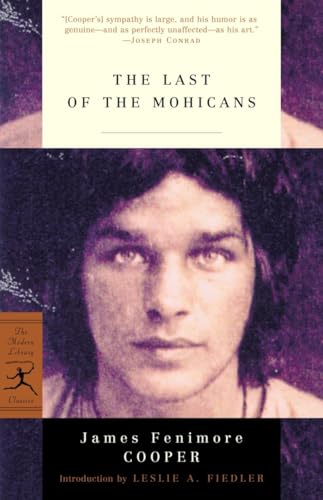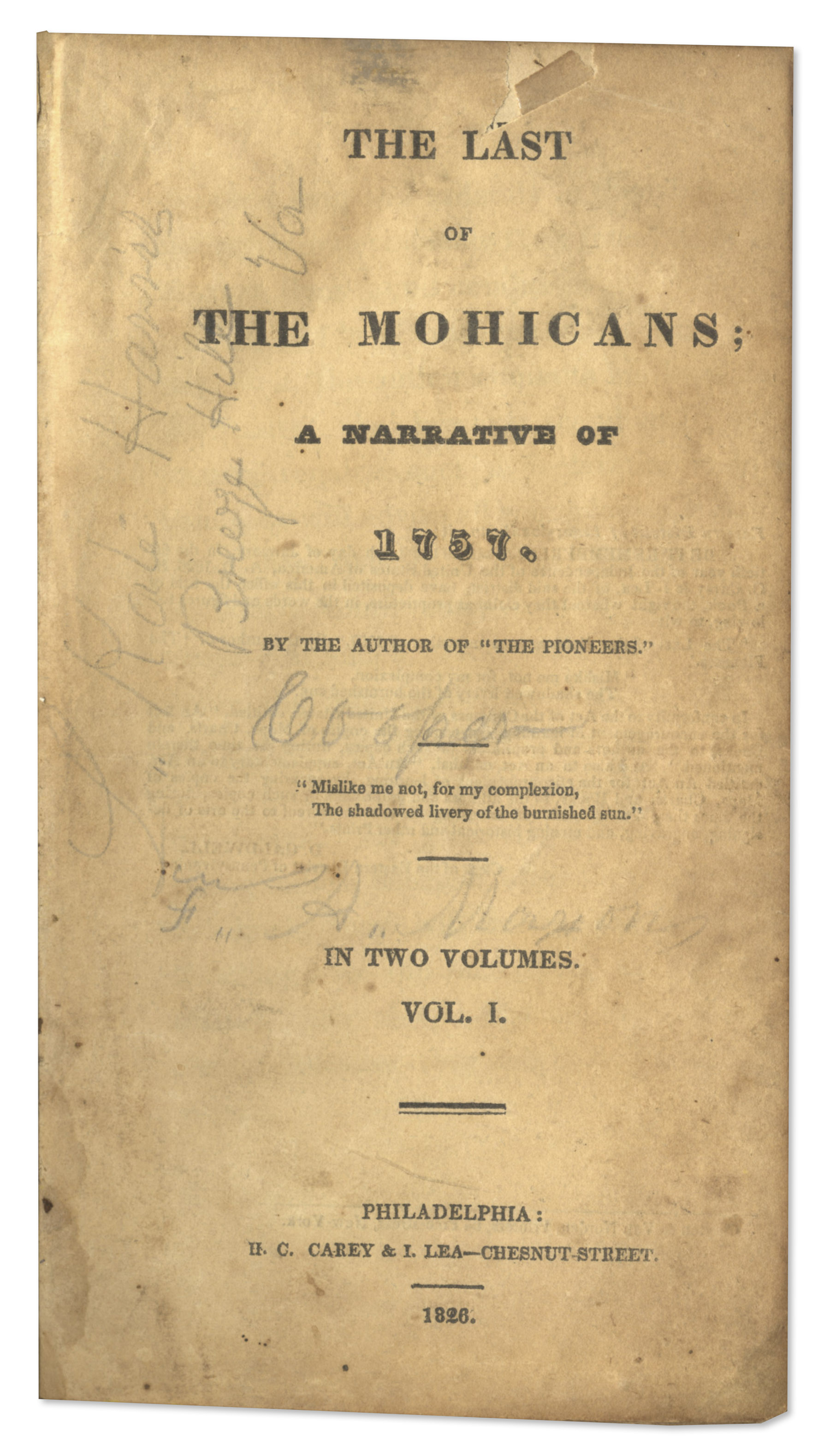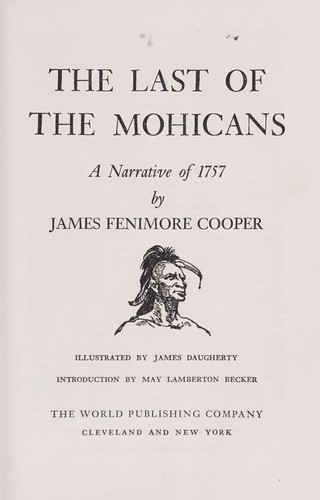


Binding sturdy, text cleaner than typical.Ģ volumes. Offsetting from (no longer present) bookplates to title pages. Evidence of dampstain to gutters at front and rear. Light scattered foxing to text, with moderate edgewear to preliminary leaves, small expert paper repairs to margins of a few leaves, including title of vol II. Contemporary full brown sheep, sympathetically rebacked with original gilt-stamped spines and black morocco spine labels laid down. It must also be said that when MOHICANS was translated into the 1992 film it led to, as one of our cataloguers insists, "the greatest film score ever composed" (by Trevor Jones and Randy Edelman). This focus on nature and narrative was also a critical forerunner to transcendentalist writers like Thoreau. (The title itself refers to a myth still incorrectly believed by many descendants of European colonists today, that all the Indigenous nations were disappearing.) The book vividly describes the American wilderness, tying its story to geographic grandeur in an approach (shared by Washington Irving) that applied principles of romanticism to the novel.

In mythologizing the beginning of the United States, LAST OF THE MOHICANS set the terms for how US citizens would tell stories about themselves.

It was Cooper's most successful book to date, and carried his reputation abroad: "In Europe the book produced quite a startling effect," recalled his daughter, the author Susan Fenimore Cooper. LAST OF THE MOHICANS is a historical novel set during the French and Indian War in 1757, and based in part on Cooper's understanding of the Mohican tribe, part of the Eastern Algonquian family that were forcibly relocated west in the decade after this book's publication. Even those who disliked his work, like Mark Twain, owe him a debt (which Twain well knew): as Wayne Franklin puts it, "without Cooper, there could have been no Mark Twain" (xxii). In defining the path for future writers, Cooper laid the groundwork for American masterpieces like Hawthorne's SCARLET LETTER and Melville's MOBY-DICK. His works sought to build a uniquely American tradition, and his books' sales went a long way towards doing so. Cooper was perhaps the most significant popularizer of "key forms of American fiction - the Western, the sea tale, the Revolutionary romance" (Franklin, xi). One of the earliest writers born in the United States to achieve success on an international scale, Cooper has had a formative influence on the path of American literature that is difficult to overstate. First printing, first issue of this classic of US literature, a major influence on the development of the Western, American Romanticism, and North American-set historical fiction.


 0 kommentar(er)
0 kommentar(er)
